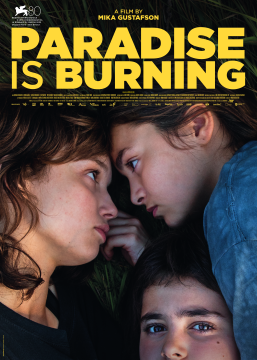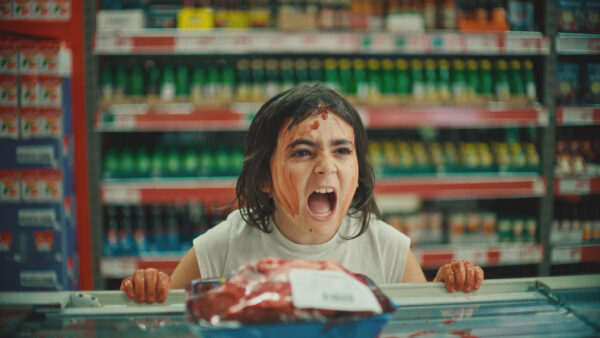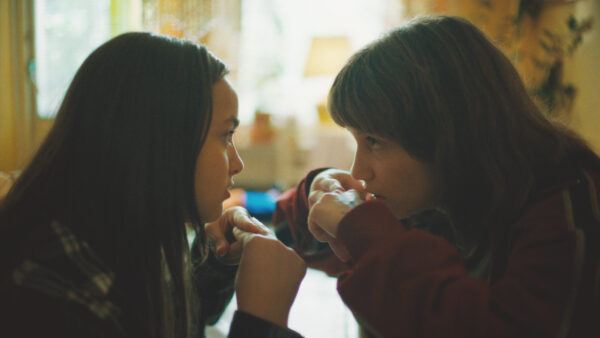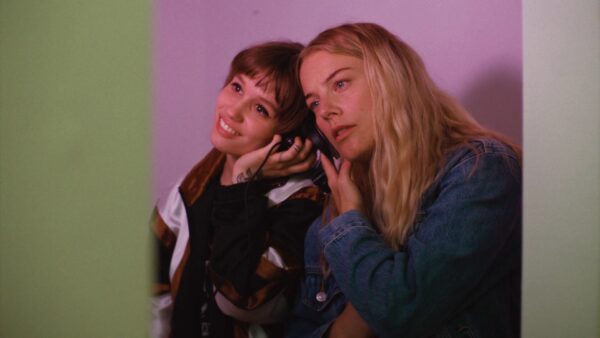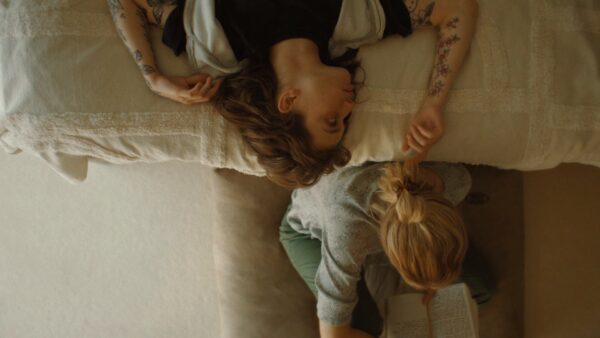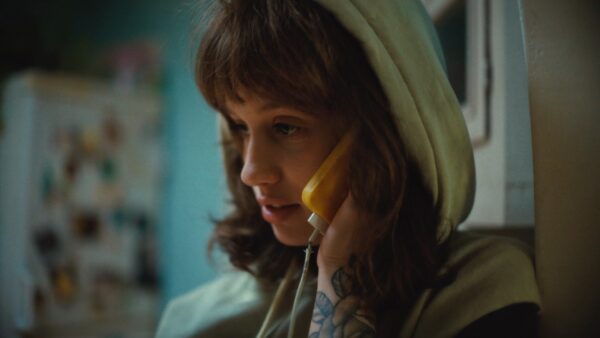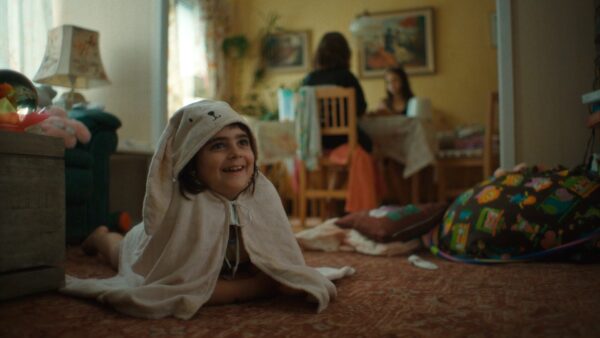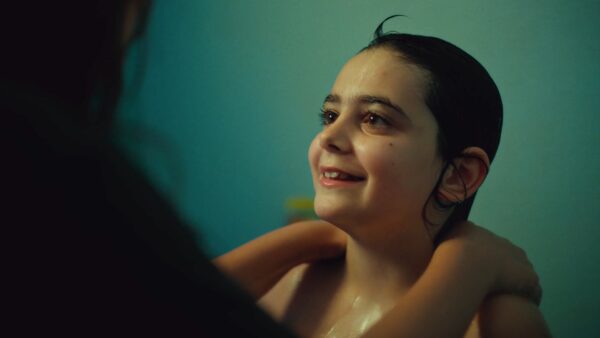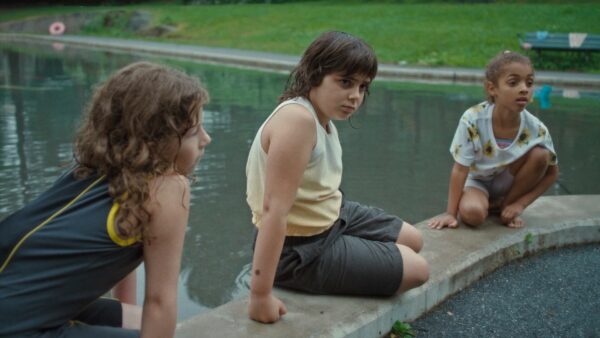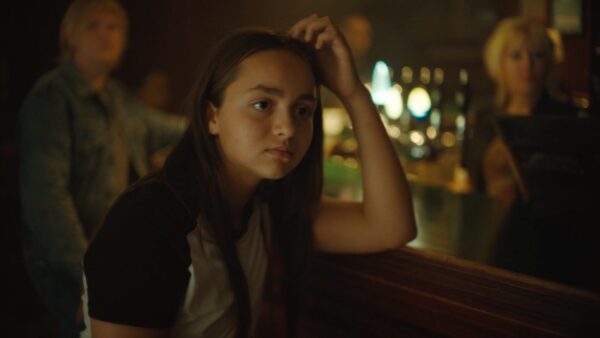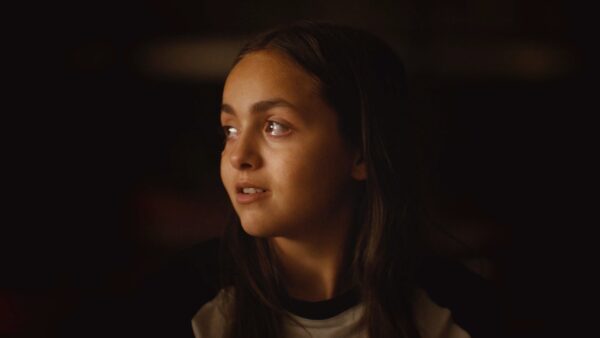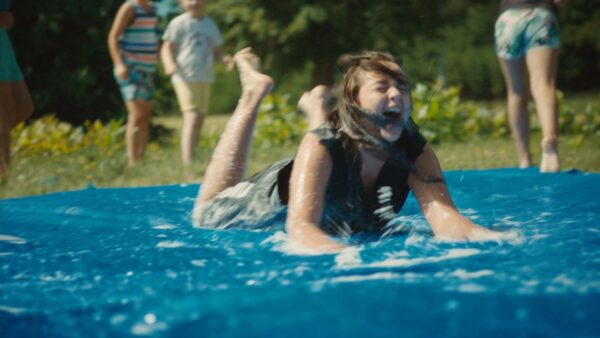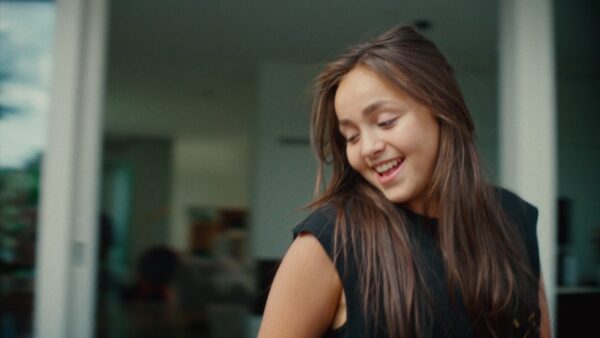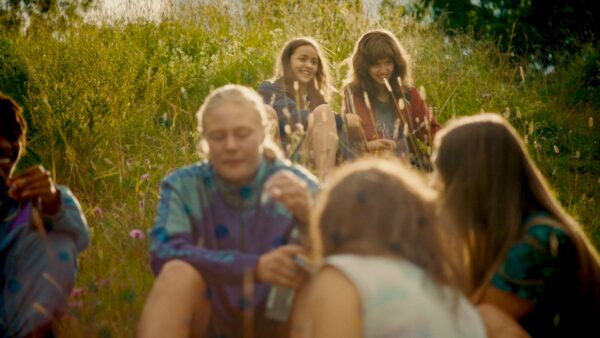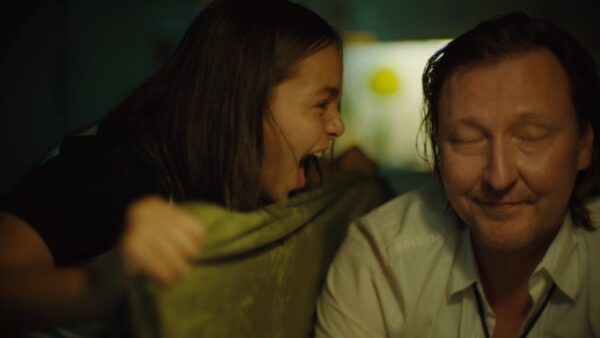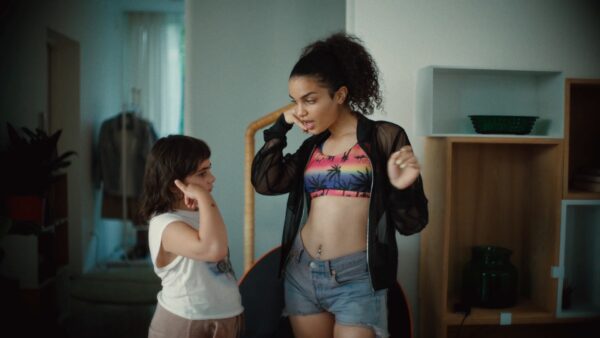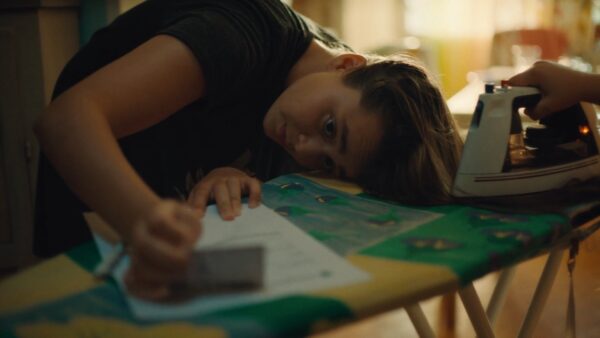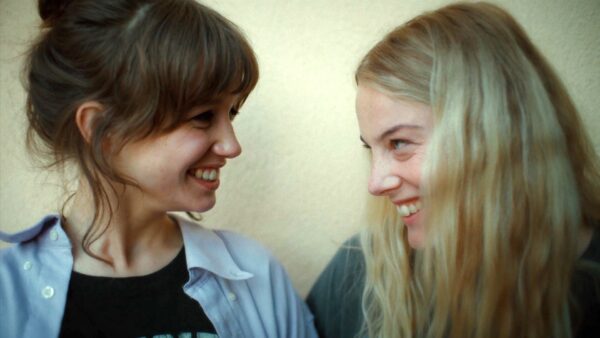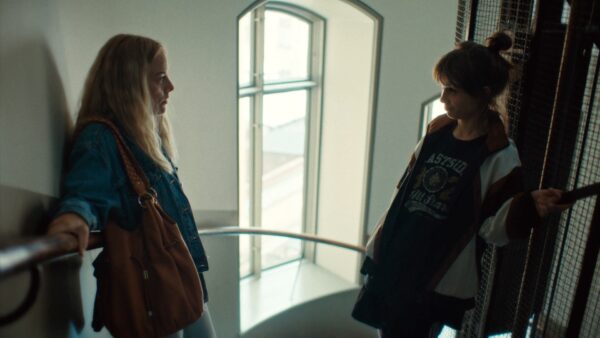THREE YOUNG PERFORMERS TURN THIS FILM
INTO A PARADISE
Here in California, a title like Paradise is Burning (Paradiset Brennet) brings to mind one of the most devastating wildfires in our history, the one that decimated the northern California town of Paradise in 2018. In fact, when I saw the title, I thought it was a documentary about that event.
But it’s not. It’s a moving, slice-of-life, coming-of-age movie from Sweden that is equal parts summer romp and serious drama. It’s the debut feature film by Mika Gustafson, who won Best Director and Best Screenwriter awards in the Horizons section of the Venice International Film Festival and Best First Feature Award at the BFI London Film Festival, both in 2023.
Three fatherless sisters, aged 7, 12 and 16, have been abandoned by their mother and it falls on the shoulders of the eldest Laura (Bianca Delbravo) to keep 12-year-old Mira (Dilvin Asaad) and 7-year-old Steffi (Safira Mossberg) together, going to school, maintaining appearances and avoiding the social service worker who will surely take the young ones away if their circumstances become known. She bears this burden on her own without telling the younger girls.
But it’s summer now, Laura is a teenager, inclined toward teenage fun, Mira is a pre-pubescent rebellious teen, and Steffi a wild little kid, all of whom love and anticipate the sense of freedom they have, with no adult supervision to rein in their instinctive natures.
They live in public housing in a working class suburb near Gothenburg, and the chaos is immediately apparent, from getting the girls fed and dressed to a house in utter disarray. When Steffi wets the bed and Laura needs to bring the wash to the laundromat, she doesn’t have detergent. She tries to “borrow” some from another patron, who chases her off. It’s a small taste of one of her little habits.
Laura likes to break into people’s homes, not so much to steal as to see how they live, looking at their belongings, reading their diaries, and trying to imagine what a life unlike her own could be. Mira spends time “managing” their unemployed, middle-aged male neighbor who wants nothing more than to win a karaoke contest. Steffi is outdoors, getting into fights, learning to mimic adults with a cigarette in her hand and, when asked if she’s going to get into the swimming pool, pretending to have her period, an experience she’s just seen Mira go through.
The freedom to do whatever they want is the best part of the film, and their youthful adventures are filled with fun, some bullying, gatherings in the countryside, experiments in drinking and smoking, typical summer kid stuff. To get what they need, the girls have worked out various shoplifting routines.
But tensions arise as we wonder what kind of man hangs out with a 12-year old girl, one who is dealing with the stress of who’s keeping track of Steffi and worrying about what trouble she might be getting into. We also wonder what Laura’s new adult friend Hanna (renowned Swedish actor Ida Engvoll) wants from her.
Hanna enjoys the freedom, excitement and transgressive nature of her breaking-and-entering escapades with Laura. But we never really learn why Hanna is acting out this way with a teenager, when she’s solidly middle-class, with a house, a husband and a baby. Is she bored with her life? Does she have postpartum depression? That’s not answered here.
When the social worker finally sets the date for a home visit, Laura hopes to persuade Hanna to pretend she’s the girls’ mother. But she goes too far, infringing on Hanna’s real life, and the opportunity slips away.
The three girls are non-professional actors, which may be why their characters feel so completely natural. The dialogue feels as if they’re living these characters, not performing them. The girls fight and love each other in equal measure; the spirit of the film is alternately warm, sweet, edgy and messy. Director Gustafson writes, “I wanted to make a film that was both punk and poetic at the same time. Create a sense of euphoric freedom that lies cheek to cheek with despair and the everyday humor in between.”
Playing Laura, Bianca Delbravo should have a great career ahead of her. She was an accidental discovery by co-screenwriter Alexander Öhrstrand, who appears in the film as Hanna’s husband. She can be salty, sultry, intense, and creates a sense of both unbridled joy and pathos in her performance. She’s just a teenager but she has an old soul, feeling the weight of the world on her shoulders.
Danish Cinematographer Sine Vadstrup Brooker is big on natural light in the interior scenes and uses strong close-ups of faces, both inside and out, effectively. The interiors feel chaotic and claustrophobic, exteriors release the characters’ youth and energy (not always to their benefit), and perhaps the sweetest view is of the three girls, seen from behind, walking down a road together, bumping into each other and acting just as three affectionate siblings would.
stills courtesy of Room 8 Films
Paradise is Burning
Room 8 Films
Sweden, Denmark, Finland, Italy | 108 min | color | 2023
in Swedish with English subtitles
opens September 6, 2024, at Laemmle’s Royal in West LA and Laemmle Glendale
for more info, visit Paradise Is Burning
